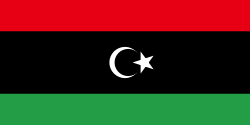Back
Policy Brief: The Cedi’s Appreciation: A turning point or temporary relief?
May 14, 2025
Background to Cedi’s recent performance
The Ghanaian cedi has long been characterised by persistent volatility, often undermining economic stability and investor confidence. For years, the currency has been on a steady downward trajectory against major international currencies such as the US dollar, British pound, euro, and Japanese yen. The 2024 fiscal year was particularly difficult for the cedi, with the local currency ranked among the four worst-performing currencies in Sub-Saharan Africa, according to the World Bank’s Africa Pulse report published in October 2024. During the same period, the cedi had depreciated by approximately 24% against the US dollar. Just two months earlier, Bloomberg similarly listed the cedi as one of the world’s worst-performing currencies.
The consequences of this sustained depreciation were severe. The sharp decline in the cedi’s value eroded public trust in the national currency and strained the broader economy. Vulnerable populations bore the brunt of the impact, as the rising cost of living significantly diminished household purchasing power. Inflation surged, driven largely by increased prices of essential goods and services, compounding the financial hardships faced by many Ghanaians.
However, in a notable shift, recent months have seen a marked appreciation of the cedi. This paper examines the policy implications of this reversal, an unusual but welcome development in Ghana’s macroeconomic landscape. It seeks to analyse the drivers behind the cedi’s recent appreciation, its effect on the economy, assess its potential sustainability, and explore how policymakers can leverage this momentum to enhance macroeconomic stability and support inclusive growth.
3Shares
0Comments
13Favorites
13Likes


































































































No content at this moment.